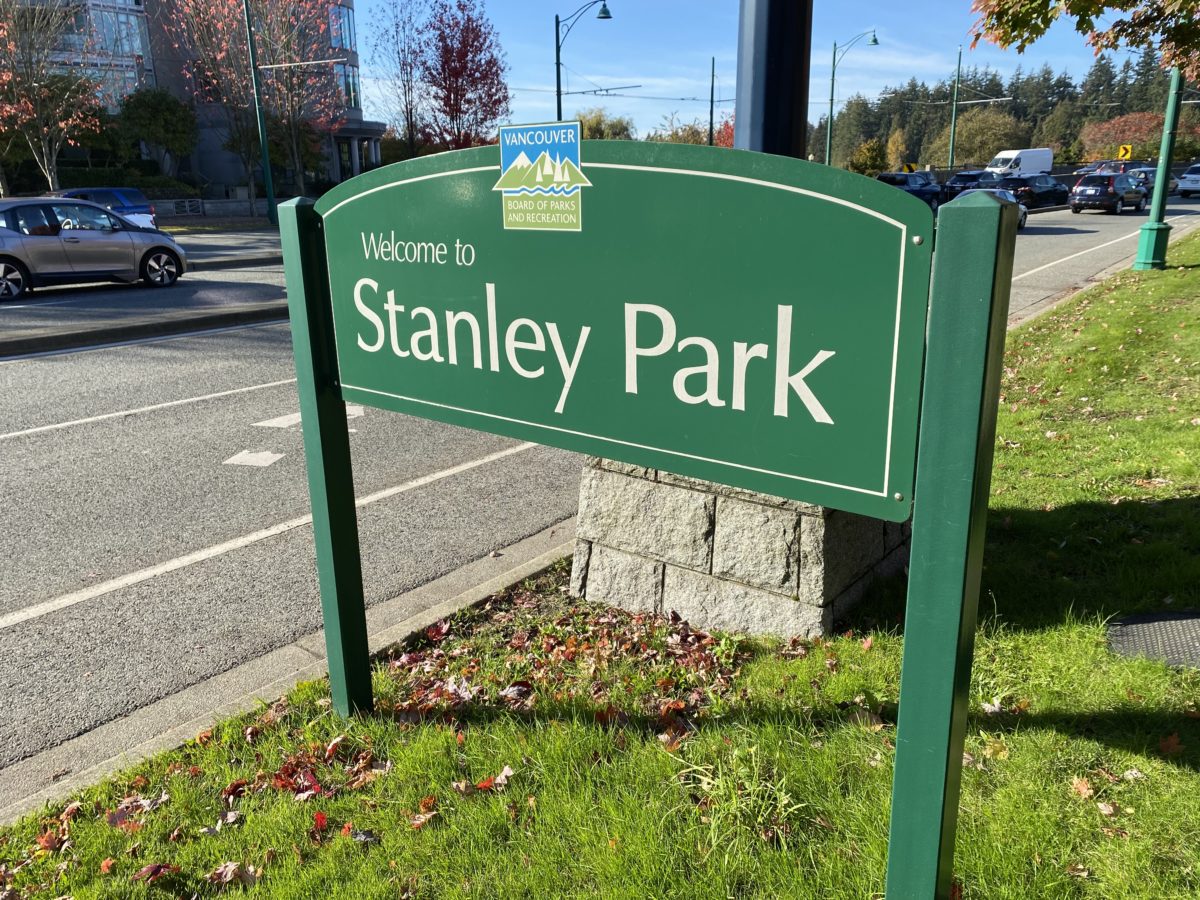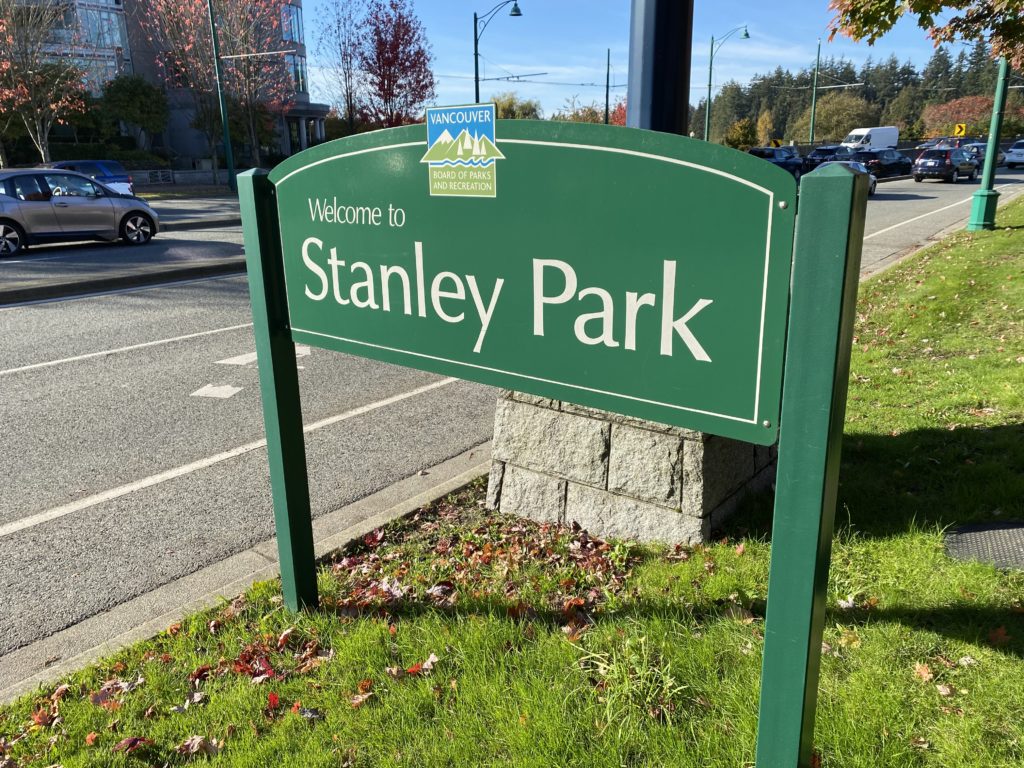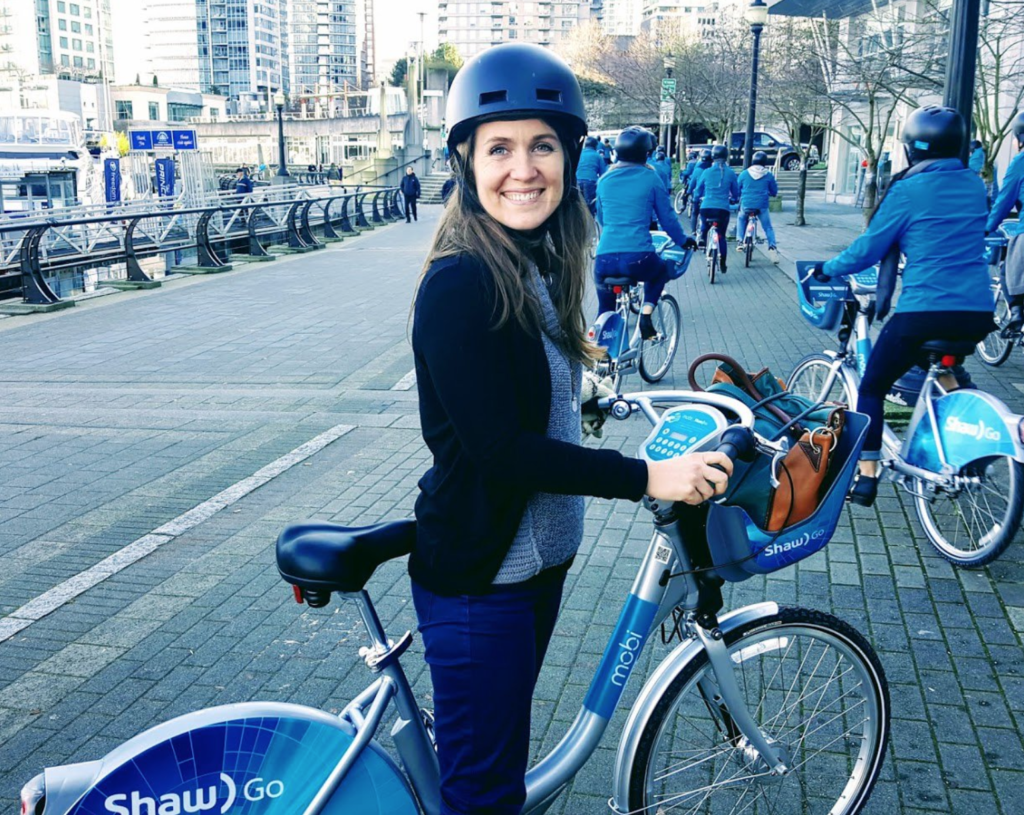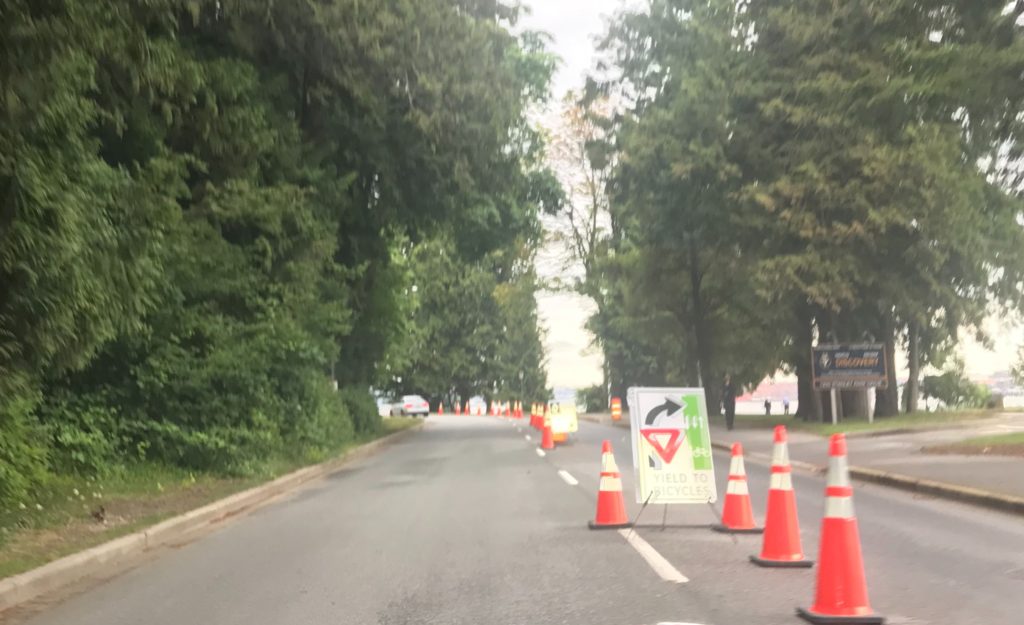
Bob Mackin
On March 8, the Vancouver Park Board is scheduled to debate chair Camil Dumont’s motion to give one of Stanley Park Drive’s vehicle lanes to cyclists and reduce car and truck parking in Vancouver’s jewel until the end of October.

Stanley Park entrance on West Georgia (Mackin)
Expect irate park-based businesses, seniors and people with disabilities to vehemently oppose. They endured the two-month pandemic-inspired ban on motorists last spring, followed by another three months of single-lane vehicle traffic.
No doubt, they will be met by a peloton of proponents, spurred into action by a social media-savvy registered charity that depends on government funding and boasts sponsors in the construction and real estate industries.
Changes to the province’s lobbying laws mean Vancouver’s “bike lobby” is not some nebulous concept anymore.
Hub Cycling and the B.C. Cycling Coalition, of which Hub is a member, have registered provincially.
In its registration, Hub reported receiving $142,149 from an unnamed municipal government in the last 12 months, $6,000 from the Real Estate Foundation of B.C., $4,000 from University of British Columbia and $495,000 from Ministry of Transportation and Infrastructure through January 2022.
“We did register for the B.C. Office of the Registrar of Lobbyists — we are not, however, required to record municipal lobbying activities there as per your request about the City of Vancouver and Vancouver Park Board,” executive director Erin O’Melinn said by email. “In any case, our municipal advocacy is done by volunteers on our board and local committees.”

Hub Cycling’s executive director Erin O’Melinn (Twitter)
Documents obtained under freedom of information by theBreaker.news [see below] show Hub billed Vancouver taxpayers $328,064.75 from 2017 to 2019 to organize elementary school training programs, Bike to Work Week repair and refreshment stations and the Bike the Night rally.
The payments also included $4,000 from city hall for matching funds for Hub’s research on how real estate design encourages cycling. The project also included cash support from the Real Estate Foundation of B.C., engineering firm Bunt and Associates, developer Boffo, architect Dialog and Urban Racks bike parking company. Urban Development Institute and Vancity Impact Real Estate were named as in-kind supporters.
Invoices for the 2019 Bike the Night rally show Hub’s events manager, Tracy Wilkins, charged $9,744 for subcontractor fees and O’Melinn $5,468.40. Wilkins joined city hall last month as a planning analyst.
In 2019-2020, Hub Cycling ran on a budget of almost $1.3 million. Of that, it reported $805,000 in staffing costs and $153,000 for subcontractors. The biggest source of funding, $715,000 was from governments, followed by $434,000 in private funding and donations. Only $52,500 from membership fees and $38,000 from courses and fees for service.
Hub’s lobbying at 12th and Cambie sparked bike lane construction on Hornby Street ($3.2 million), Point Grey Road ($6.5 million) and the Granville Bridge ($12.5 million).
Hub is among the non-profits listed in the Canada Emergency Wage Subsidy database, but O’Melinn did not say how much payroll help Hub received or how many jobs the subsidy supported.
Hub engages in what Canada Revenue Agency calls “public policy dialogue and development activities,” which is legal, as long as it does not favour a specific party or politician.
Hub describes its policy and development work as “calls to political action (encouraging the public to contact their local councillors, park board commissioners, MLAs or MPs) to ask them to make cycling safer and more accessible.

Stanley Park Drive in late June 2020.
“Through its action campaigns, Hub Cycling led online petitions and participated in meetings in order to encourage the building of safer and more connected cycling facilities for all ages and abilities and better policy and education,” said the organization’s disclosure. “These activities relate to Hub Cycling’s charitable purpose of conserving the environment and improving the health of people in Metro Vancouver by encouraging cycling as a mode of transportation.”
Before the 2018 municipal elections, Hub sent a call to action to its members to repeat their 2014 effort, in-person and on social media, to elect cycling friendly politicians across Metro Vancouver.
“These leaders were key to building more than 50 important bike-friendly projects across the region. Our 10 local committees are active, each communicates with councils across the region,” read the Hub email to members. “Hub’s #UnGapTheMap campaign has encouraged municipal councils to close gaps in our cycling network.”
Business supporters on Hub’s website run the gamut from David Suzuki Foundation to Vancity Credit Union. The list also includes major real estate and construction players, some of whom stand to benefit from bike lane construction, including developers Shape and Wesgroup, development consultancy Pottinger Bird, engineering firm Ausenco and the region’s dominant cement supplier for roads and bike lanes, Lafarge.
Last year’s Stanley Park closures, which extended to the West End, left a legacy with a new bike lane on Beach Avenue. When it was installed in December, city hall said the cost was $250,000.
Ultimately, the new bike lane is part of a bigger strategy, connected to the West End Waterfront Master Planning process. The council-approved project is marketed as a rethink to parks, beaches and other public space. This happens during a wave of upscale condo tower development around the West End, transforming the dense forest of apartment buildings into a resort district appealing to foreign investors who want to buy close to Stanley Park.
Support theBreaker.news for as low as $2 a month on Patreon. Find out how. Click here.










